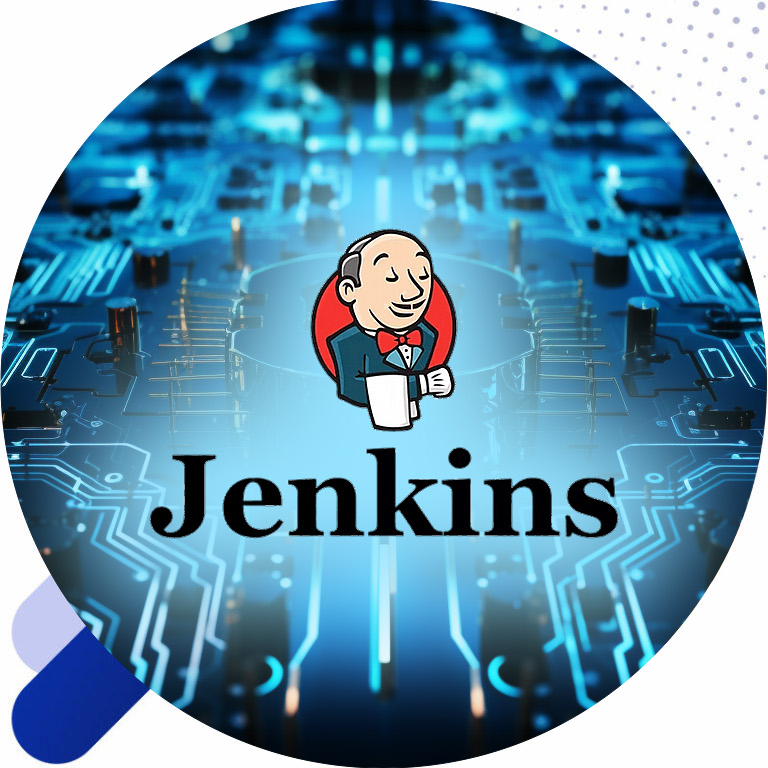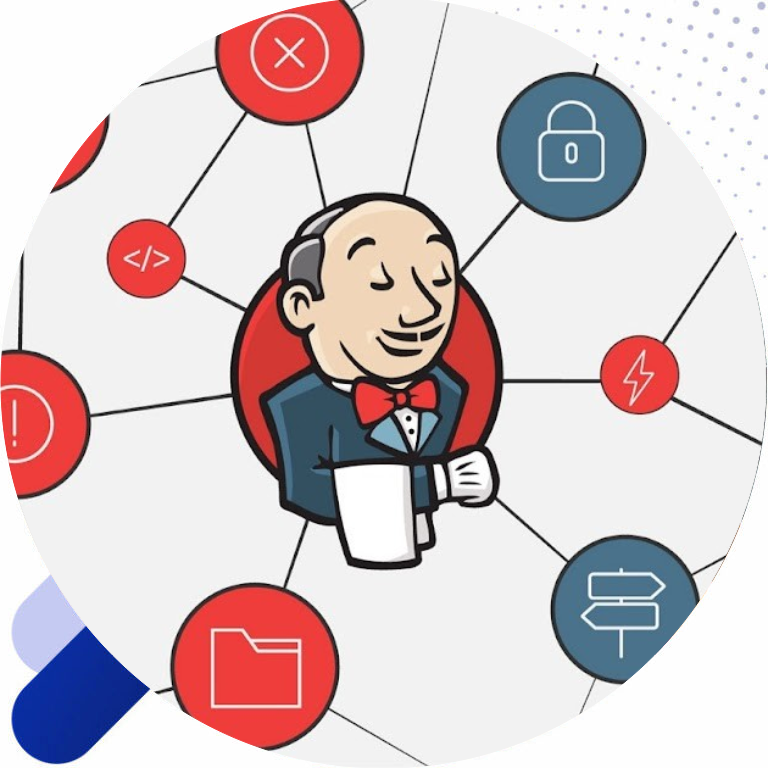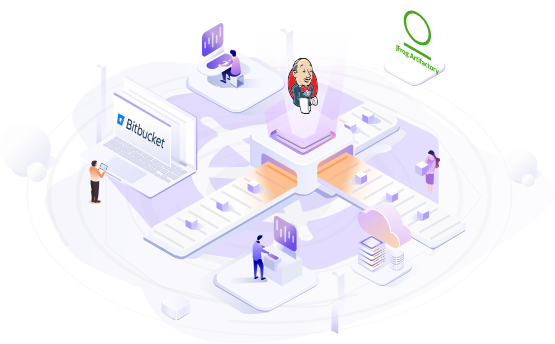Jenkins Consulting: Empowering DevOps and Continuous Integration
In the dynamic landscape of software development, where agility and rapid deployment are paramount, Jenkins has emerged as a cornerstone tool for Continuous Integration (CI) and Continuous Delivery (CD). As businesses strive to enhance their software delivery processes, Jenkins consulting services have gained prominence. These services provide expertise, guidance, and support to organizations looking to harness the full potential of Jenkins for their CI/CD pipelines. This essay delves into the various facets of Jenkins consulting, exploring its significance, benefits, and the transformative impact it can have on modern software development practices.

Understanding Jenkins
Jenkins is an open-source automation server written in Java, commonly used to manage the build and deployment of applications. Its extensibility through plugins allows developers to customize their CI/CD workflows, making it a preferred choice for enterprises looking to adopt DevOps principles. From automating testing to deploying applications seamlessly across diverse environments, Jenkins provides a robust framework that can significantly boost productivity.
The Role of a Jenkins Consultant

Jenkins consultants are seasoned professionals who specialize in helping organizations optimize their use of Jenkins for software development. They bring a wealth of knowledge gained from real-world implementations, enabling them to provide tailored solutions that align with the specific needs of a business. Here are the key responsibilities of a Jenkins consultant:
1. Assessment and Strategy Development
The journey begins with an assessment of the organization’s existing CI/CD practices and Jenkins setup. By closely analyzing the current infrastructure, the consultant identifies bottlenecks, inefficiencies, and areas for improvement. Following this assessment, they collaborate with the organization to develop a comprehensive Jenkins strategy that includes:
- Defining KPIs: Establishing clear metrics to measure the success of the Jenkins implementation, such as deployment frequency, lead time, and mean time to recovery.
- Scalability Planning: Identifying potential future needs and ensuring that the Jenkins infrastructure can grow with the organization.
- Risk Management: Developing contingency plans to mitigate risks associated with automation and deployment processes.
2. Implementation and Configuration
Once a strategy is in place, the Jenkins consultant takes on the vital task of configuring the tool to align with the organization’s workflows. This phase encompasses:
- Plugins Selection & Integration: Jenkins’ power lies in its extensive plugin ecosystem. A consultant equips teams with the right plugins to enhance functionality while providing guidance on integrating Jenkins with other tools such as Git, Docker, Kubernetes, and cloud services.
- Pipeline Development: Crafting pipelines that reflect best practices in CI/CD, including code quality checks, automated testing, and deployment strategies.
- Environment Setup: Configuring Jenkins to operate in various environments, ensuring that it is secure, stable, and capable of handling different stages of the development cycle.


3. Training and Knowledge Transfer
Even the most sophisticated Jenkins setup is only as good as the team using it. Jenkins consultants prioritize the transfer of knowledge among team members:
- Workshops and Training Sessions: Conducting practical hands-on training to empower developers, testers, and operations teams to effectively utilize Jenkins.
- Documentation: Providing comprehensive documentation that serves as a reference guide for team members, including instructions on managing jobs, troubleshooting common issues, and employing best practices for pipeline development.
4. Maintenance and Support
The technology landscape is ever-evolving, and so are the needs of organizations. A continuous partnership with a Jenkins consultant can help organizations adapt to changing requirements:
- Ongoing Monitoring and Maintenance: Regular check-ins to ensure that Jenkins is operating smoothly, updating plugins, and applying security patches to mitigate vulnerabilities.
- Performance Optimization: Analysts assess the performance of Jenkins implementations, making recommendations to enhance speed, reliability, and overall efficiency.
- Troubleshooting and Support: Providing prompt assistance with any issues that arise, from build failures to integration woes, reduces downtime and keeps projects on track.

Benefits of Jenkins Consulting
Engaging Jenkins consulting services offers a multitude of benefits, which can significantly enhance an organization’s software development processes.
Accelerated Deployment
By streamlining CI/CD pipelines, Jenkins consultants enable faster and more frequent software releases. This acceleration reduces time-to-market and enhances the ability to respond to market demands.
Improved Code Quality
Automated testing and continuous integration catch bugs and issues early in the development cycle. Consultants help in setting up comprehensive testing frameworks, ensuring higher code quality and stability.
Enhanced Collaboration
Jenkins fosters collaboration between development, testing, and operations teams. Consultants facilitate this collaboration by integrating Jenkins with other tools such as Jira, Slack, and GitHub, promoting seamless communication and issue tracking.
Scalability and Flexibility
As organizations grow, their CI/CD needs evolve. Jenkins consultants design scalable architectures that can handle increased workloads and complexity. They also ensure that Jenkins remains flexible enough to accommodate changing requirements.
Cost Efficiency
While consulting services involve an initial investment, the long-term benefits far outweigh the costs. Optimized pipelines reduce manual effort, minimize downtime, and prevent costly errors, resulting in substantial cost savings.
Knowledge Empowerment
By equipping the existing team with the knowledge to leverage Jenkins effectively, organizations can foster a culture of continuous improvement and innovation.
Case Studies: Transformative Impact of Jenkins Consulting
E-commerce Giant
An e-commerce giant faced challenges in managing its CI/CD processes due to a rapidly growing codebase and frequent releases. The company engaged Jenkins consultants to revamp their pipelines. The consultants implemented a robust Jenkins setup with automated testing, deployment, and monitoring. This transformation reduced deployment times from hours to minutes, improved code quality, and enabled the company to roll out new features swiftly.
Financial Services Firm
A financial services firm needed to ensure compliance with stringent regulatory standards while maintaining agile development practices. Jenkins consultants helped in configuring secure pipelines with automated compliance checks. They also integrated Jenkins with security tools to detect vulnerabilities early. As a result, the firm achieved compliance without compromising on development speed, ensuring the integrity of their financial applications.
Healthcare Technology Firm
A healthcare technology firm was struggling with a fragmented CI/CD pipeline that led to delays in deploying critical updates to their patient management system. The existing process was manual, error-prone, and lacked integration with essential testing tools.
Advanced Configuration and Customization
Advanced Pipeline Configurations
Jenkins pipelines can be highly complex, and advanced configurations often involve the use of:
Declarative Pipelines: These are written in a structured, domain-specific language and are often more user-friendly. Declarative pipelines allow users to define the stages, steps, and post-build actions clearly.
Scripted Pipelines: These offer more flexibility and are written in Groovy. Scripted pipelines can handle more complex scenarios but require a deeper understanding of Groovy and Jenkins internals.
Multibranch Pipelines: These automatically create pipelines for each branch in a repository. This is especially useful for projects with multiple feature branches, as it ensures that each branch is built and tested independently.
Custom Jenkins Plugins
Jenkins has a rich ecosystem of plugins, but sometimes off-the-shelf plugins do not meet specific needs. Custom Jenkins plugins can be developed to:
Extend Jenkins Functionality: For example, a custom plugin might integrate with proprietary tools or perform specialized tasks not covered by existing plugins.
Improve Integration: Custom plugins can be developed to enhance integration with other systems, such as enterprise resource planning (ERP) systems or custom testing frameworks.
Automate Specialized Tasks: Create plugins to automate industry-specific tasks or workflows, such as compliance checks for regulated industries.
Speak With Expert Engineers.
Contact us by filling in your details, and we’ll get back to you within 24 hours with more information on our next steps

Please fill out the contact form

Call Us
United Kingdom: +44 20 4574 9617

UK Offices
Business Address: 70 White Lion Street, London, N1 9PP
Registered Address: 251 Gray's Inn Road, London, WC1X 8QT
Schedule Appointment
We here to help you 24/7 with experts

